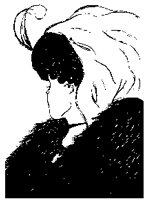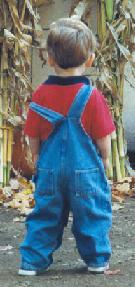When a person stops thinking about one thing and starts thinking about something else, often the switch in thoughts is triggered by an emotion. Specifically, moving from one thought to another can be described as removing one thought from conscious thinking, and replacing it with another thought into conscious thinking.
Why do you start thinking a new thought? Why does a new thought move into your conscious thinking? It might be that you start thinking a new thought because you touch, see, and hear something (Damasio (1999)), because you have a feeling and that triggers this thought (Damasio), because you have a thought that triggers this thought (Damasio & LeDoux (1996)), or because you become for an instant more self-awareness (LeDoux). And there are probably even more other stimuli that may trigger a new thought.
I’m interested in looking at emotions as triggering a thought moving into conscious thinking. Part of Merriam-Webster’s definition of emotion is that it is “subjectively experienced as a strong feeling . . . typically accompanied by physiological and behavioral changes in the body.†An emotion is a set of sensations.
How can emotions trigger thoughts? Not every emotion has to trigger a change in thought. For example, a person can have three different emotions while thinking about the same topic, but on the fourth emotion, the person may switch to thinking about a different topic.
What is the basis for the assumption that emotions can trigger thoughts?
- First of all, it appears that on a biological level, feelings come before thoughts. Myers describes that researchers have identified pathways in the brain that allow feeling to precede thinking. Myers describes that brain research by Joseph LeDoux and Jorge Armony shows that there is an emotional pathway that goes from the eye to the amygdala (feeling) and this bypasses the intellectual cortex (thinking). Myers concludes, “This makes it easier for our feelings to hijack our thinking than for our thinking to rule our feelings†(p. 37).
- Additionally, Ekman (2003) says that emotions arise when something that matters to a person happens or is about to happen. Why would emotions be able to trigger a change in thoughts? Ekman says, “The desire to experience or not experience an emotion motivates much of our behavior†(p. 19). Thus, an emotion of boredom at work may trigger a desire to be in the emotion of joy, and that may trigger the behavior of taking a break from work in order to get ice cream.
- Another reason for this assumption of feeling triggering thought is that Haidt postulates that people have an initial reaction to most events in their lives (and he refers to this reaction as the like-o-meter: “do I like this thing?â€). Haidt describes a model of moral judgment and his studies around that model. According to his experiments, feelings come first, and then people attempt to rationalize the conclusion of those feelings.
In summary, various research points to the assumption that feelings often trigger thoughts – the biological explanation, the Ekman explanation of emotions motivating behavior, and the Haidt research pointing to initial reactions being motivated by feelings ahead of thoughts.
More to come later this week and next!
References:
Damasio, A. (1999). The Feeling of What Happens. San Diego: Harcourt, Inc.
Ekman, P. (2003). Emotions Revealed. New York: Henry Holt and Company.
Goldberg, E. (2005). The Wisdom Paradox. New York: Gotham Books.
Haidt, J. (2006). The Happiness Hypothesis. New York: Basic Books.
LeDoux, J. (1996). The Emotional Brain. New York: Simon and Schuster.
Myers, D. (2002). Intuition: Its Power and Perils. New Haven: Yale University Press.


